Our Chester Zoo scholars are working on a range of topics from conservation breeding, monitoring animal populations, human-wildlife conflict and the well-being of species at the zoo.
Last week we introduced you to Rutendo Wazara and the work she’s been doing – studying the social wellbeing of the elephant herd at Chester Zoo. Next, keeping with the elephant-theme, we would like to introduce you to Ee Phin Wong who is also carrying out research on the Asian elephant; this time in Malaysia.
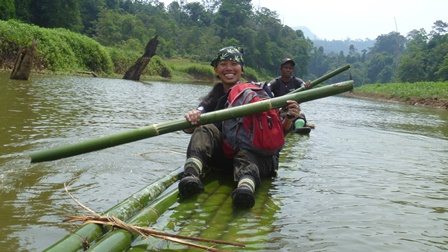
Here she tells us all about it:
“Four years ago, I started my PhD study on wild Asian elephants in Peninsular Malaysia. For me, it was an opportunity of a lifetime to get close to one of the largest terrestrial animals on Earth. Elephants are intelligent and they share many similarities with us (humans) such as living together in family groups, having complex social interactions and having the ability to express themselves in different types of behaviour.
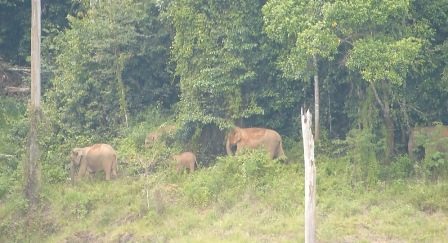
“It is very difficult to observe wild elephants due to dense vegetation in the tropical rainforest. In comparison to African savanna elephants (Loxodonta africana), there is very little that we know about forest elephant demographics and behaviour.
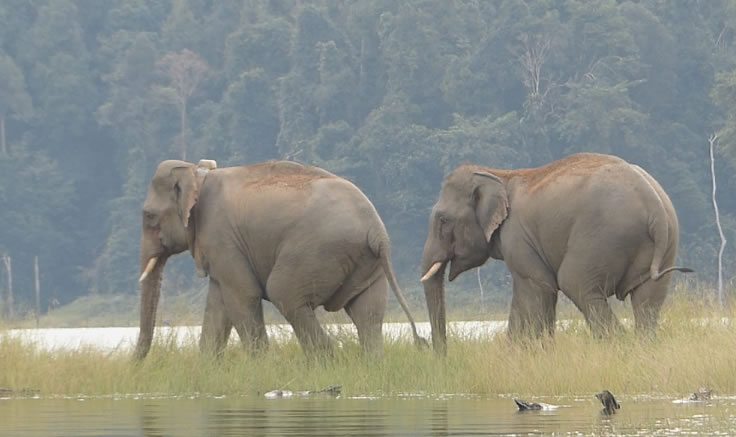
“In Peninsular Malaysia and elsewhere, in order to reduce human-elephant conflicts (which largely comprises of elephants raiding crops at plantations), translocation is often use as a management strategy. However, not much is known about the effect of translocation on wild Asian elephants; which warrants more investigation. With the help of Global Positioning System (GPS) satellite collars with real-time data and non-invasive methods which include measuring hormones extracted from elephant dung, I was able to compare physiological response of translocated elephants to local resident elephants.
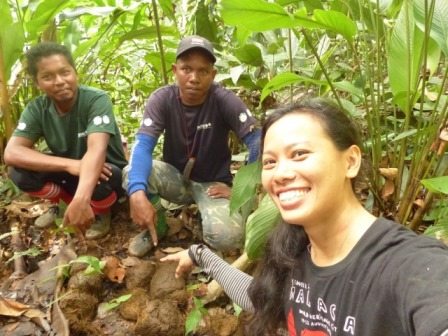
Ee Pin looks happy to find fresh elephant dung
“My results show that translocated elephants have different hormone response in comparison to local resident elephants. This suggests that translocation can cause prolonged physiological changes in the elephants up to a year or more. The next step for me would be to identify what are the implications from the prolonged physiological changes to the animals’ health and behaviour.
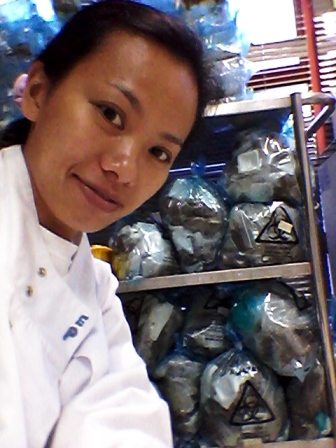
Ee Phin with a cart filled with ‘left-over’ dung from hormone extraction (there were a few cart loads!)
“My PhD taught me that science takes a lot of hard work and time, as well as the willingness to keep trying to find answers. Inevitably, this means I will stumble on more questions and the cycle continues. This study would not be possible without support from various stakeholders including government agencies, Management & Ecology of Malaysian Elephants, University of Nottingham Malaysia Campus and Chester Zoo.
“Let us all support elephant conservation, work to increase tolerance to having elephants as neighbours and continue to find better ways to co-exists together on this planet.”
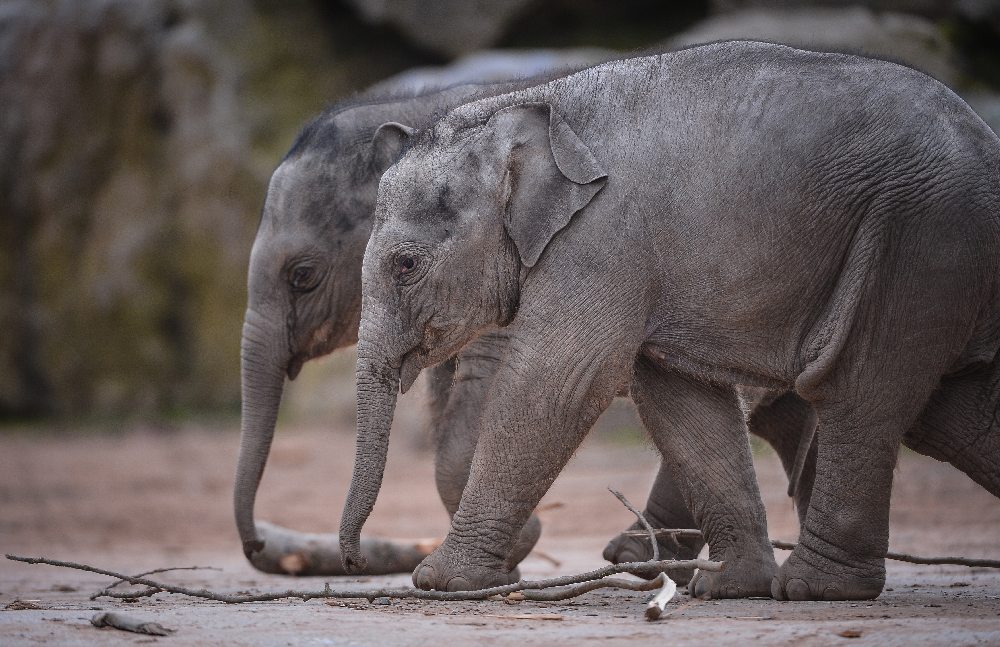
Asian Elephants need your help!!!